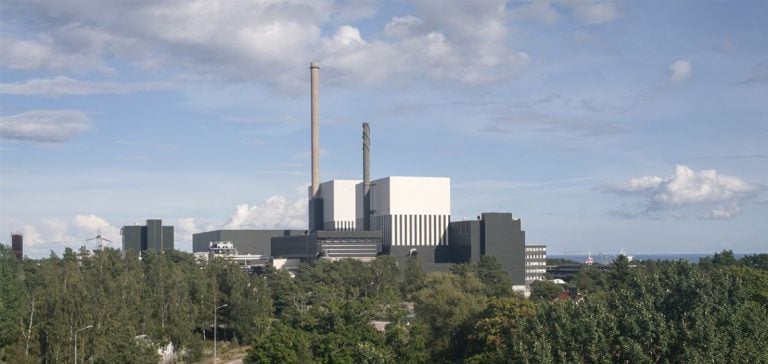A specialized court in Sweden has approved the start of construction for a nuclear waste disposal site in Forsmark, located 130 kilometers north of Stockholm. This innovative project represents a significant step forward in nuclear waste management for the country, aiming to protect the environment and ensure the safety of future generations.
The Forsmark site, situated near one of Sweden’s nuclear power plants, is designed to accommodate around 6,000 capsules containing nearly 12,000 tons of radioactive waste from Sweden’s current reactors. This project places Sweden as a global pioneer in long-term storage, alongside Finland, which is conducting a similar project. Ultimately, Sweden will become one of the few countries in the world with such a permanent disposal site, joining France, which is considering a comparable facility in the northeast, in Bure.
Safe Storage for Millennia
For this project, the company SKB (Svensk Kärnbränslehantering AB), responsible for managing radioactive waste in Sweden, plans to use cutting-edge technology to ensure the integrity of the facilities for a theoretical duration of 100,000 years. Spent nuclear fuel rods will be enclosed in cast-iron capsules, then placed in sealed copper canisters at a depth of 500 meters underground. These canisters will be installed in cavities closed with bentonite plugs, a material that effectively minimizes the risk of radioactive leaks due to its low permeability.
This Forsmark site will store waste from the 12 reactors active or previously active in Sweden, distributed across three nuclear power plants. The expected storage operations will last 70 years, although this duration could be extended depending on the lifespan of the reactors still in service. The court specified, however, that this authorization does not extend to waste that could be generated by future reactors.
Ongoing Debate on Environmental Risks
This court decision comes amid continuing environmental concerns, especially regarding the risks of future radioactive leaks. Critics, primarily from environmental protection organizations, fear that the copper used in the canisters may not be sufficiently durable to ensure millennia-long tightness.
Despite these concerns, the project has received political support, with the Swedish government seeking to diversify its energy solutions. The current center-right government even considers the construction of two new reactors by 2035, with a gradual nuclear expansion planned through 2045. However, this next step toward nuclear expansion in Sweden remains controversial, with some advocating for a transition to more sustainable and less risky energy sources.
Sweden and Finland: A Common Nuclear Strategy
Sweden’s choice of a long-term underground storage solution aligns with a regional trend, as Finland has already taken similar measures with the Onkalo site. In Europe, these Nordic countries are among the few opting for this definitive waste management solution, favoring permanent disposal over temporary storage. The planned storage capsule in Oskarshamn, in southern Sweden, serves as an intermediate facility while awaiting the final transfer of waste to Forsmark.
This model could inspire other countries looking to improve the safety of their radioactive waste management. For instance, France is also considering a disposal site in Bure, though the authorization process remains ongoing and could take several years to complete.






















